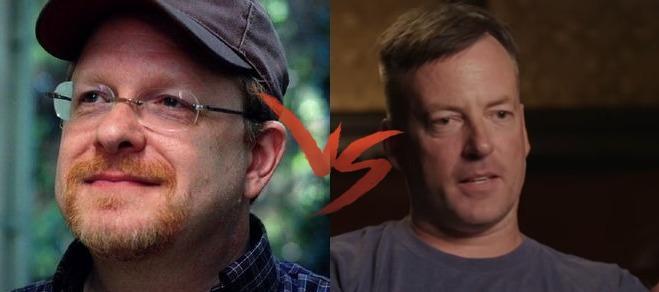Not With a Bang... Richard C. Meyer Drops Suit Against Mark Waid
FTC Statement: Reviewers are frequently provided by the publisher/production company with a copy of the material being reviewed.The opinions published are solely those of the respective reviewers and may not reflect the opinions of CriticalBlast.com or its management.
As an Amazon Associate, we earn from qualifying purchases. (This is a legal requirement, as apparently some sites advertise for Amazon for free. Yes, that's sarcasm.)

In what may turn out to be a lump of coal in the stockings of supporters of the Comicsgate movement, Richard C. Meyer and Mark Waid announced jointly on their social media platforms that the litigation against Waid for tortious interference had been dropped, citing the independent success of Meyer's graphic novel, Jawbreakers, which had been at the center of the tort, as well as the unexpected impact of COVID-19 on, well, everything.
Meyer's graphic novel was a point of contention since its inception, not because of its content but because of Meyer's reputation on YouTube for reviewing comic books and the publishing industry in general with harsh impoliteness. When it was announced that Jawbreakers would be published by Antarctic Press, and thus subsequently distributed worldwide by Diamond Comics Distribution, some retailers met in private groups on Facebook to stand in solidarity against even making the book available on their shelves. The movement was made moot, however, after Mark Waid contacted the publishers at Antarctic, engaging in a conversation resulting directly in Antarctic canceling their deal; it was this action that began the ball rolling on the tortious interference lawsuit, which also included a separate action wherein Meyer claimed defamation over allegations Waid made at a Texas (Meyer's state of residence, and the state in which Antarctic is headquartered) comic book convention, where recordings of Waid's statements in a panel discussion contradicted things he had stated to the courts in a previous motion.
After much legal wrangling over jurisdition and whether or not Meyer even had standing to file suit in the first place, a trial date was expected to take place in the spring of 2021. It's a trial that will now not take place, given the statement released by both parties jointly:

One can expect several days of online musing about the motivations behind the decision, what terms were part of the confidential agreement, and which side -- if any -- actually "won" the argument (and certainly supporters of both sides are claiming victories). And while one would hope that, if anything, the entire matter would give one pause before inserting themselves into someone else's announced publishing deal, the fact that the crowdfunding movement has been such a successful renaissance movement for independent creators makes one wonder if there is ever even going to be a need for a creator to strike such a publishing deal anymore.


